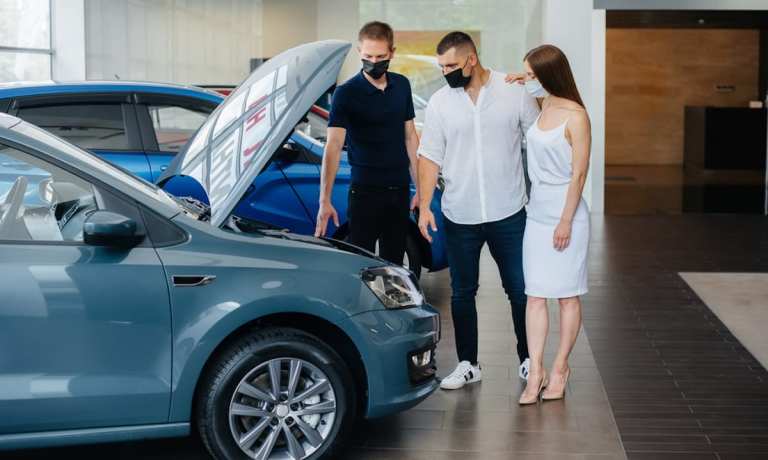US Car Sales Shift Into High Gear In Q1

The car buying craze is on. According to recent reports, consumers are snapping up new vehicles at pre-pandemic levels, as a massive case of FOMO (fear of missing out) seems to be sweeping the entire commerce landscape.
Auto sales were up 8 percent in Q1, as vaccines continued to circulate and consumer confidence in an eventual return to normal began to tick up, leading to vehicle shortages that have only accelerated the buying binge, according to Bloomberg reports. According to researcher J.D. Power, retail deliveries are forecast to have reached 3.16 million vehicles during Q1, the second-highest total on record.
“There’s a little FOMO going on here, fear of missing out,” said Jeff Schuster, president of the Americas and global vehicle forecasting at researcher LMC Automotive. “Consumers have sacrificed on choice because the color combination or option combination they wanted wasn’t available, but they bought a vehicle anyway. You take what you can get right now.”
The spike is not a new trend in 2021, but a continuation of growing consumer interest in vehicle purchases since factories reopened for production in summer of 2020. Automotive purchases have picked up 20 percent year on year, compared to a period in 2020 that largely preceded shut-down and stay-at-home orders.
The early days of the pandemic were tough on the industry. Digital auto sales platform Shift had the best month in its company’s history in February 2020, but by the time CEO Toby Russell was addressing his shareholders’ town hall in March, the firm was looking at its worst month in its five-year history, leaving Russell in near tears as he addressed investors.
“As this crisis environment continues and we assess demand, it is possible we have to go further than this, but we hope to see higher demand than we had anticipated,” stated a post on the company’s blog. “If this happens, we would be able to bring our team members back to work.”
And in fact, Shift’s fortunes did change, as the firm announced last month that it will go public via a complicated reverse merger agreement in the third quarter with insurance Acquisition Corp. “We are excited to partner with Shift and its world-class management team as it leverages its technology platform to disrupt the $840+ billion used car market,” said Daniel Cohen, chairman of the board of directors of Insurance Acquisition Corp. “With its tremendous, ongoing success in its core markets, we believe that this merger and its accompanying capital infusion will enable Shift to expand its product offerings and execute on its growth strategies.”
With the move, Shift anticipates a three-car race between Shift, Vroom and Carvana to control the emerging online auto sales segment, as the coronavirus has notably boosted online car sales, per The Wall Street Journal.
“We live in a world of ‘on demand’ now, where customers manage and measure and track the number of steps they took yesterday. We’ve become data junkies,” Vroom CEO Paul Hennessy told Karen Webster in a recent conversation about the digital auto market’s move into the fast lane over the last 12 months. “Broadly speaking, the used car market is robust, and it’s getting more robust” even as car manufacturing has stalled, Hennessy said. “There’s great organic, fundamental demand for the used car space.”
According to the experts, that demand is expected to hang around for a while, particularly as production numbers continue to lag demand. Consumers are responding to shrinking inventories and buying aggressively. “The retail consumer is really driving all of this right now, and that’s in a market where incentives are flat at best,” Schuster said. “The semiconductor shortage has been so much in the news, that drove people to say, ‘I don’t want to be caught without a vehicle, so I’m going to go get what I can.’”
Read More On Car Sales:
- Tesla’s Grip on US Electric Car Market Slips in Q2
- Carvana Adds New Features for Buying and Selling EVs
- CDK Expects to Have Hacked Systems Restored by July 4
- Online Auto Industry Stalls as Consumers Drive New Digital-First Experiences